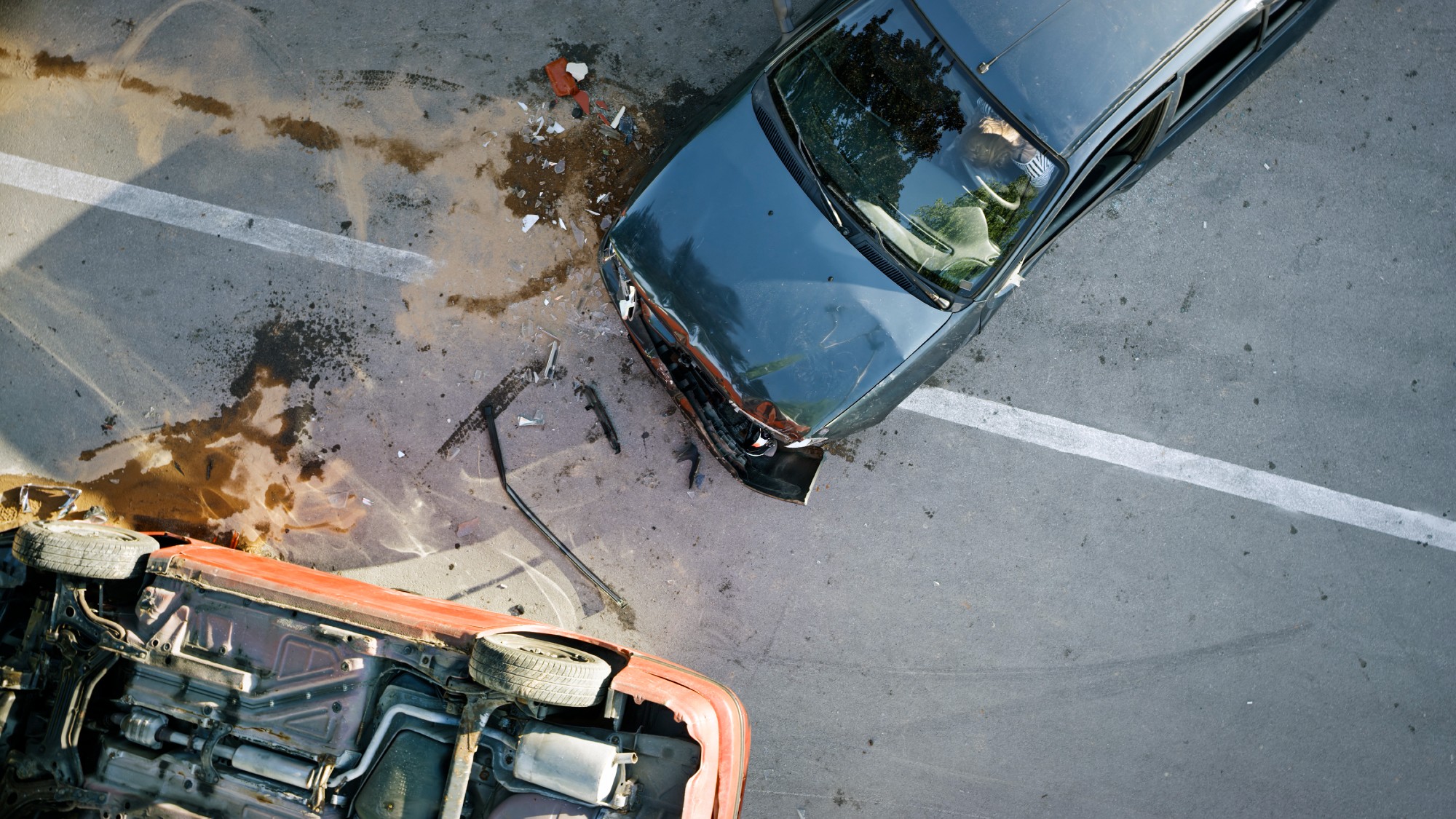Car fatality rates are driving up
The dang Covid-19 pandemic made us worse drivers


A free daily email with the biggest news stories of the day – and the best features from TheWeek.com
You are now subscribed
Your newsletter sign-up was successful
Driving has become more deadly. The rate of crash deaths has gone up since 2020 and has been further aggravated by Americans' love of large vehicles and smartphones. The rise in deaths likely points to larger mental health struggles, with the car becoming an outlet to express anger and frustration. Traffic deaths in the U.S. also largely outnumber traffic deaths in other comparable countries.
How have traffic deaths increased in the U.S.?
When automobiles were first invented, they were incredibly deadly because the world was unfamiliar with the new technology. Over time, road infrastructure as well as car technology improved and driving became safer. The addition of seat belts, multiple airbags, rearview cameras and blind spot sensors worked to drive down deaths due to car crashes. By 2010, car fatality rates were only about 10% of what they were in 1920, according to The New York Times.
This had been the trend until the Covid-19 pandemic hit. Between 2020 and 2021, "the number of crashes in the United States soared 16%, to more than six million, or roughly 16,500 wrecks a day," and in 2021, "42,939 Americans died in car crashes, the highest toll in a decade and a half," the Times summarized. Many of those deaths resulted from intoxicated driving, speeding and not wearing a seat belt.
The Week
Escape your echo chamber. Get the facts behind the news, plus analysis from multiple perspectives.

Sign up for The Week's Free Newsletters
From our morning news briefing to a weekly Good News Newsletter, get the best of The Week delivered directly to your inbox.
From our morning news briefing to a weekly Good News Newsletter, get the best of The Week delivered directly to your inbox.
The increase in crash deaths also coincides with Americans' preference for larger vehicles. Trucks and SUVs offer less visibility on the road. Vehicle size and driver recklessness have also affected people outside the cars themselves. Pedestrian and cycle deaths increased more than 60% between 2011 and 2022. Despite vehicle safety increasing over time, "a vehicle could fail the pedestrian crash-worthiness test and still receive five stars," Billy Richling, a spokesperson at the National Association of City Transportation Officials, told The Associated Press.
How has mental health played a role?
During the pandemic, "drivers were frustrated," Deborah Kuhls, a professor of surgery at the Kirk Kerkorian School of Medicine at the University of Nevada, Las Vegas, told the Times. "My own theory is that whatever personal conflicts they had were exacerbated because they'd been sheltering in place during Covid. So they'd get on the road having self-medicated with drugs or alcohol, or they'd just be incredibly reckless." The mental stress from the pandemic was easily channeled on the road. "All those emotions, they have to go somewhere," Ryan Martin, a psychologist at the University of Wisconsin, told the source. "There's your mood when you entered the car in a rush. There's provocation — something that happens to you, like being cut off. And relatedly, there's how you interpret the provocation based on your mood."
Another factor is people's addiction to smartphones. Matt Fiorentino, a vice president at Cambridge Mobile Telematics, told the Times, "The adoption of smartphones for the past 15 years — where we are today, being addicted on social media and other apps — absolutely contributes to the increase in fatalities on our roads." Americans also use their phones on the road more than people in other countries, leading to further distracted driving, leading to more traffic wrecks and deaths.
In order to curb car fatality rates, the Governors Highway Safety Administration recommends "designing and building safer roadways, engaging with people experiencing homelessness, focusing traffic enforcement on dangerous driving behaviors such as speeding and driving impaired or distracted, and educating novice drivers about their responsibility to look out for and yield to pedestrians and other road users."
A free daily email with the biggest news stories of the day – and the best features from TheWeek.com
Devika Rao has worked as a staff writer at The Week since 2022, covering science, the environment, climate and business. She previously worked as a policy associate for a nonprofit organization advocating for environmental action from a business perspective.
-
 Local elections 2026: where are they and who is expected to win?
Local elections 2026: where are they and who is expected to win?The Explainer Labour is braced for heavy losses and U-turn on postponing some council elections hasn’t helped the party’s prospects
-
 6 of the world’s most accessible destinations
6 of the world’s most accessible destinationsThe Week Recommends Experience all of Berlin, Singapore and Sydney
-
 How the FCC’s ‘equal time’ rule works
How the FCC’s ‘equal time’ rule worksIn the Spotlight The law is at the heart of the Colbert-CBS conflict
-
 ‘Longevity fixation syndrome’: the allure of eternal youth
‘Longevity fixation syndrome’: the allure of eternal youthIn The Spotlight Obsession with beating biological clock identified as damaging new addiction
-
 Stopping GLP-1s raises complicated questions for pregnancy
Stopping GLP-1s raises complicated questions for pregnancyThe Explainer Stopping the medication could be risky during pregnancy, but there is more to the story to be uncovered
-
 RFK Jr. sets his sights on linking antidepressants to mass violence
RFK Jr. sets his sights on linking antidepressants to mass violenceThe Explainer The health secretary’s crusade to Make America Healthy Again has vital mental health medications on the agenda
-
 Tips for surviving loneliness during the holiday season — with or without people
Tips for surviving loneliness during the holiday season — with or without peoplethe week recommends Solitude is different from loneliness
-
 More women are using more testosterone despite limited research
More women are using more testosterone despite limited researchThe explainer There is no FDA-approved testosterone product for women
-
 Climate change is getting under our skin
Climate change is getting under our skinUnder the radar Skin conditions are worsening because of warming temperatures
-
 The app tackling porn addiction
The app tackling porn addictionUnder the Radar Blending behavioural science with cutting-edge technology, Quittr is part of a growing abstinence movement among men focused on self-improvement
-
 Food may contribute more to obesity than exercise
Food may contribute more to obesity than exerciseUnder the radar The devil's in the diet
